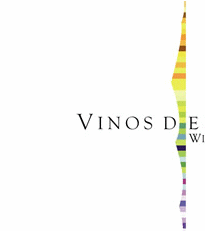Fiji: Fiji Communication Profile 2012
2012/03/12
Fiji Communication Profile 2012
Since the change in government in 2006 Fiji has been through the world financial crisis, its infrastructure was damaged by floods in 2009, it has seen reduced tourist numbers and reduced exports, its economy contracted, and then the Fijian dollar was devaluated by 20% in April 2010. But despite amount of this, GDP is now expected to increase to 2.1% in 2010. Tourism is increasing with record arrivals in some months in 2010/11, with the government aiming to increase arrivals to 6 million by 2020.
The government has an expansion schedule which, by 2020 includes liberalisation of institutions, communications services increasing by 100% and a renewable energy target of 90%. To kick start the evolution, $325 million was announced for capital spending in 2010. Fiji is keen to expand and further develop the telecoms market, of which a lot of sectors have been languishing due to high costs. Broadband participation is now set to increase with a 0% tax on dongles, while other industries using ICT are as well winners with reductions in tax for optical media and AV incentives to attract foreign film makers.
Relative to a lot of other South Pacific islands Fiji has a fairly reliable and efficient telecom system with access to the Southern Cross submarine cable linking New Zealand, Australia and the US. Fiji’s telecom industry is based around three major monopolies which were protected through exclusivity licences until regulatory changes occurred in 2007 with passing of the government’s Telecommunications Bill, which deregulated elements of the country’s telecom sector.
Prior to the passing of the bill Telecom Fiji had an exclusive licence to provide domestic fixed-line voice and data services; Vodafone Fiji was the sole provider of mobile services; and Fintel had a monopoly on international voice and data services. As a result, Fijians were subjected to relatively poor service, high prices and minimal customer care. However Vodafone lost its monopoly status when Digicel Fiji launched its network in 2008.
Internet penetration remains relatively low and rural penetration is poor with a high cost. This is set to change if price cuts announced by ComCom are passed onto consumers. Price cuts on Fintel’s Internet bandwidth take effect from mid-2010 through to mid-2011. The price cuts in total will be over 61% over the-year period.
Due to a degree of parliamentary inactivity while the country is temporarily under military policy further reform to telecommunications regulation is unlikely in the short term. Further foreign investment in the domestic market is as well likely to be reviewed by multinational firms.
In 2009 the President implemented a set of Public Emergency Regulations that supposedly limit freedom of speech, expanded the power of law enforcement and curbed media freedom. The Permanent Secretary for Data was given the power to control broadcasts and publications.
In a further move to limit control over media power, new media restrictions came into force in mid-2010. The law states that amount company directors and a minimum 90% of shareholders to be Fijian citizens. The restriction affects the newspaper Fiji Times, which was owned by media magnate Rupert Murdoch. As such, the paper had choices – either closing down or transferring ownership to a local company before late 2010. The paper was sold in September 2010.
Estimated Internet penetration in selected South Pacific nations – 2010
| Country |
Population
(thousands) |
Internet penetration |
|---|---|---|
| Cook Islands | 13 | 30% |
| Fiji | 890 | 12% |
| Guam | 179 | 61% |
| Nauru | 12 | 30% |
| Niue | 2 | 63% |
| Palau | 21 | 26% |
| Papua New Guinea | 6,100 | 2% |
| Vanuatu | 241 | 8% |
(Source: BuddeComm, various industry sources)
.fj
- Fiji News
-
- AFGHANISTAN: UNWTO: International tourism – strongest half-year results since 2010
- AFGHANISTAN: Higher earning Why a university degree is worth more in some countries than others
- FIJI: Faiz Khan, Executive Chairman of Airports Fiji Ltd and Fiji Pine Group of Companies
- AFGHANISTAN: Revised IMF forecasts signal gloom on global economic outlook
- AFGHANISTAN: Oxfam Study Finds Richest 1% Is Likely to Control Half of Global Wealth by 2016
- FIJI: Fiji Airways to hit milestone this year
- Trending Articles
-
- SOUTH AFRICA: Nigeria and South Africa emerge from recession
- BAHRAIN: Bahrain issues new rules to encourage fintech growth
- ARUBA: Director of Tourism Turks and Caicos after Irma: Tourism, visitors, hotels current status
- ANGOLA: Angola: Elections / 2017 - Provisional Data Point Out Qualified Majority for MPLA
- WORLD: How fair is our food? Big companies take reins on sourcing schemes
- CHINA: Russian firm seals energy exploration deal to drill South African shelf











